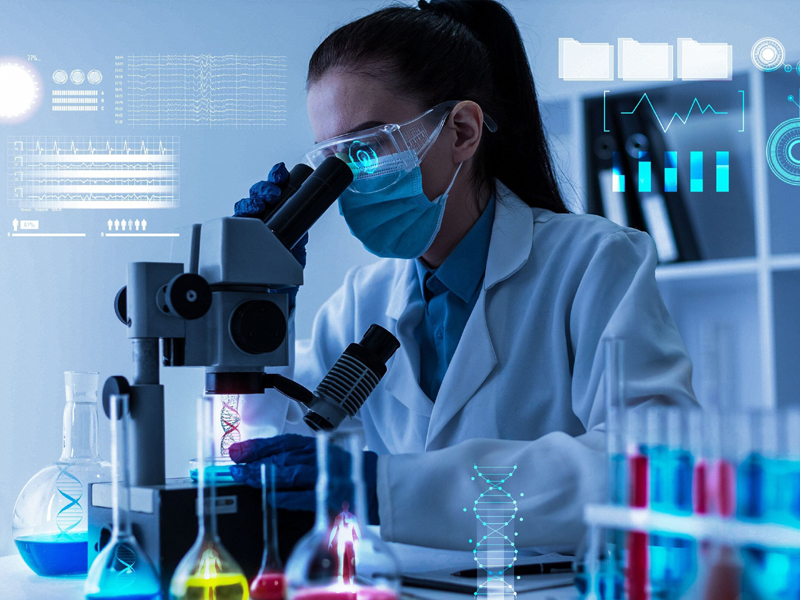Medical Laboratory Technology
- Home
- /
- Courses Offered
Medical Laboratory Technology

A Diploma in Medical Laboratory Technology (DMLT) is a specialized course that prepares students to work as medical laboratory technicians. These professionals play a crucial role in the healthcare system by performing diagnostic tests, analyzing body fluids, and ensuring the accuracy of laboratory results that aid in the diagnosis, treatment, and prevention of diseases.
Department Overview
The Department of Medical Laboratory Technology typically includes:
Modern Laboratories
Equipped with the latest diagnostic tools and equipment for hands-on training.Qualified Faculty
Experts with extensive experience in medical laboratory science and healthcare.
Industry Collaborations
Partnerships with hospitals, diagnostic centers, and research labs for practical training and placements.Research Opportunities
Engagement in research projects to enhance practical and theoretical knowledge.
Course Details
The curriculum of a Diploma in Medical Laboratory Technology generally includes:
Core Subjects
Clinical Biochemistry
Study of chemical processes within the human body.Hematology
Analysis of blood and its components.Microbiology
Study of microorganisms and their impact on human health.Immunology
Understanding the immune system and related disorders.Pathology
Examination of tissues, organs, and bodily fluids to diagnose diseases.Serology
Study of serum and immune responses.Histopathology
Microscopic examination of tissues to study the manifestations of disease.Cytology
Study of cells for diagnosis of diseases.Blood Banking and Transfusion Medicine
Techniques and management of blood donation and transfusion services.Laboratory Management
Principles of managing a medical laboratory, including quality control and safety protocols.
Practical Training
Laboratory Practicals
Hands-on experience in performing diagnostic tests and using laboratory equipment.Internships
Practical training in hospitals, diagnostic labs, and research institutions.Workshops and Seminars
Exposure to the latest developments and technologies in the field of medical laboratory science.
Career Opportunities
Graduates with a Diploma in Medical Laboratory Technology can pursue various career paths, including:
Medical Laboratory Technician
Conduct diagnostic tests and analyze biological samples.Laboratory Manager
Oversee the operations and administration of medical laboratories.Phlebotomist
Specialize in drawing blood samples from patients for testing.Pathology Technician
Assist pathologists in examining tissues and diagnosing diseases.Microbiology Technician
Work in microbiology labs to identify pathogens and study their effects.Biochemistry Technician
Perform tests related to biochemical analysis in clinical laboratories.Research Assistant
Participate in medical and clinical research projects.Quality Control Analyst
Ensure the accuracy and reliability of laboratory results.Blood Bank Technician
Manage blood donation and transfusion processes.
Industry Outlook
The field of Medical Laboratory Technology is growing due to the increasing demand for diagnostic services and advancements in medical technology. This makes it a stable and rewarding career choice with opportunities for advancement and specialization.
Graduates can find employment in various settings, including hospitals, diagnostic laboratories, clinics, research institutes, and public health organizations. The role of a medical laboratory technician is critical in the healthcare industry, providing essential data for accurate diagnosis and effective treatment of diseases.
